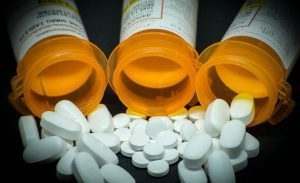

What is the FMCSA Drug and Alcohol Clearinghouse

On December 5, 2016, the FMCSA amended its rule that would establish requirements for commercial driver's license drug and alcohol clearing house. The Clearinghouse is a secure online database that will allow employers, FMCSA, State Driver Licensing Agencies and State Law Enforcement to access real time access to important information about a CDL Driver drug and alcohol program violations, which will ultimately enhance safety on our Nation's public roadways.
When must the FMCSA Drug and Alcohol Clearinghouse be used?
There are 2 keys dates with regards to the clearing house. On January 6, 2020, authorized users will be required to complete the actions described in the Clearinghouse final rule. At this time, employers will be required to conduct both electronic queries and traditional manual inquiries with previous employers to meet the three-year time frame, required by FMCSA's drug and alcohol use testing program. This 3-year time frame is for checking CDL driver violation histories. It is important to note that drivers may also view their own records for information recorded on or after January 6, 2020.
On JANUARY 6, 2023: Once three years of violation data has been reported and stored in the Clearinghouse, employers are no longer required to also request information from the driver's previous FMCSA-regulated employers under 391.23(e); an employer's query of the Clearinghouse will satisfy that requirement.
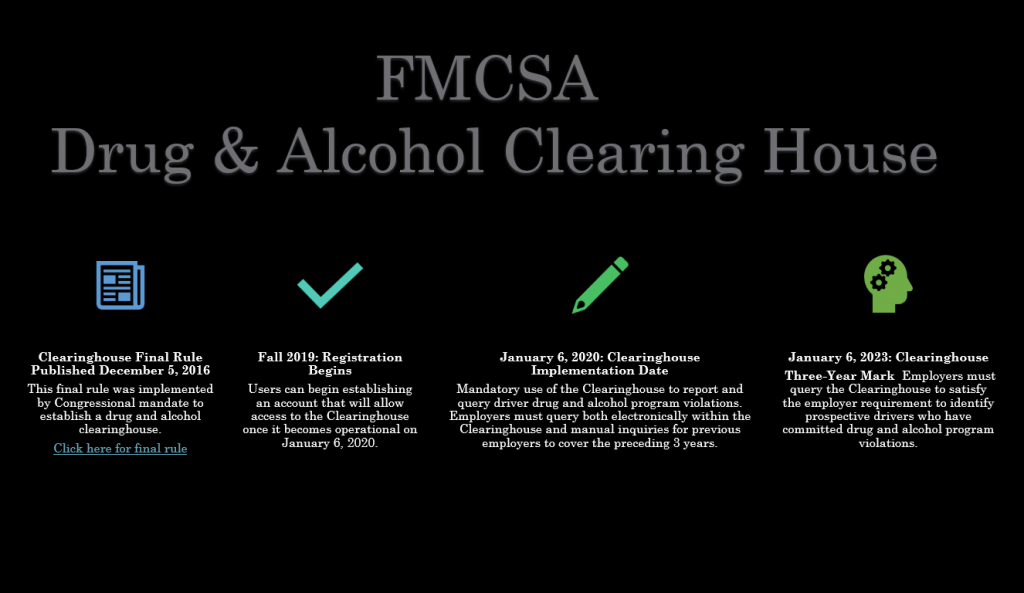
What Information will the FMCSA Drug and Alcohol Clearinghouse Contain?
The FMCSA Clearinghouse will contain information on all CDL driver drug and alcohol program violations.
These violations include:
- Report for duty/remain on duty for safety-sensitive function with alcohol concentration of 0.04 or greater or while using any drug specified in the regulations (Part 40), other than those prescribed by a licensed medical practitioner
- Alcohol use while performing, or within four hours of performing, a safety-sensitive function
- Alcohol use within eight hours of a post-accident alcohol test
- Test positive for use of specified drugs
- Refusing to submit to a required alcohol or drug test
Who will be using the Clearinghouse?
Employer Responsibilities-
Employers must report drug and alcohol violations and check that no current or prospective employee is prohibited from performing safety-sensitive functions, such as operating a CMV, due to a drug and alcohol program violation for which a driver has not successfully completed a Return-To-Duty (RTD) process.
CDL Drivers Responsibilities-
CDL drivers are responsible to view their own record, provide consent to current or prospective employers to access details about any drug and alcohol program violations, and select a Substance Abuse Professional, if needed
Medical Review Officers-
Report verified positive drug test results and test refusals
Substance Abuse Professionals-
Report Return to duty initial assessment and eligibility status for Return to duty testing.
Consortium/Third Party Administrators-
On behalf of an employer, report drug and alcohol program violations and perform driver queries as required
STATE DRIVER LICENSING AGENCIES-
Query the Clearinghouse prior to completing licensing transactions
What drivers or employers will be impacted the FMCSA Clearinghouse?
All CDL drivers who operate CMVs on public roads, and their employers and service agents. This includes, but is not limited to:
- Interstate and intrastate motor carriers, including passenger carriers
- School bus drivers
- Construction Equipment Operators
- Limousine Drivers
- Municipal vehicle drivers (e.g., waste management vehicles)
- Federal and State agencies that employ drivers subject to FMCSA drug and alcohol use testing regulations (e.g., Department of Defense, public transit)
For more information regarding the FMCSA Drug and Alcohol Clearinghouse or to enroll in our DOT random drug and alcohol testing program, Call us today at 800-221-4291.
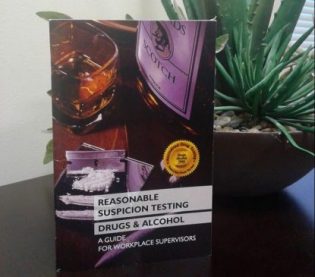
DOT Supervisor Training Courses
Accredited Drug Testing provides DOT reasonable suspicion training for supervisors utilizing an online training course in which upon completion a certification certificate will be issued.
The U.S. Department of Transportation requires that all agencies including FMCSA, FAA, FRA, FTA, PHMSA and USCG require training for DOT regulated employers to have supervisors trained in the signs and symptoms of drug and alcohol use and impairment.
To order the easy to use on-line DOT reasonable suspicion Supervisor Training Course, please register for the course on-line 24/7.
Upon registration for the course, you will be sent a log in and password identification at which time you can access the training course and complete the training requirements.
Listed Below is the DOT Agency Training Requirements:
DOT Agency Training Time
Federal Motor Carriers Safety Administration (FMCSA): 60 minutes-on controlled substances (drugs) and 60 minutes on alcohol misuse
Federal Aviation Administration (FAA): -60 minutes-on controlled substances (drugs) and 60 minutes on alcohol misuse (In addition, supervisors must receive employee training . Reasonable recurrent training is also required, typically every 12-18 months)
Federal Railroad Administration (FRA): -A total of 3 hours of training is required for this Agency. 1-hour drug, 1-hour alcohol and 1
hour post-accident determination training
Federal Transit Administration (FTA) 1-hour on controlled substances (drugs) and 1 hour on alcohol indicators of probable alcohol use.
Pipeline and Hazardous Materials Safety Administration (PHMSA) -hour on controlled substances (drugs) and 1 hour on alcohol indicators of probable alcohol use.
United States Coast Guard (USCG) One-hour of training is required on the effects of drugs and alcohol on personal heath, safety, and work environment; and manifestations and behavioral cues that may
indicate drug and alcohol use and abuse.
DOT regulated companies which employ two or more (covered) employees must have supervisors who have completed the DOT Reasonable Suspicion Supervisor Training. Failing to comply with these training requirements can subject the regulated company to fines and other penalties.
For more information regarding specific DOT supervisor training requirements call us today at (800) 221-4291 or send us a message today!
DOT Agency Random Rates 2019
Five Department of Transportation Agencies have identified their random testing rates for 2019. Federal Motor Carrier Safety Administration (FMCSA) has not yet released the random testing rates for 2019 for the motor carrier industry. Many of the DOT agencies are increasing their random testing rates for 2019, find out below which agency increased their rates this calendar year. Make sure to stay in compliance within your agency this year and join our consortium today. We will help you manage and process all of your drug tests quickly, efficiently and smoothly.

FAA Federal Railroad Administration
For the 2019 calendar year, the minimum annual random testing rates for covered service employees will continue to be 25% for drugs and 10% for alcohol, while the minimum annual random testing rates for MOW employees will continue to be 50% for drugs and 25% for alcohol.
USCG United States Coast Guard
The U.S Coast Guard has increased the minimum random drug testing rate for 2019 as a result of MIS data for the most recent reporting year indicating that the positive rate is greater than 1%. For 2019, the set minimum random drug testing rate is at 50% for drugs and 25% for alcohol.
FTA Federal Transit Administration
Effective January 1st, 2019, the minimum rate of random drug testing will increase from 25% to 50% of covered employees for employers subject to FTA's drug and alcohol regulation. This change is due to an increase in the industry’s “positive rate” as reflected in random drug test data for the most recent reporting year.
FAA Federal Aviation Administration
The FAA has determined that the minimum random drug and alcohol testing percentage rates the 2019 calendar year will remain at 25% for safety-sensitive employees for random drug testing and 10% of safety sensitive employees for random alcohol testing.
PHMSA Pipeline and Hazardous Material Administration
PHMSA has determined that the minimum random drug testing rate for covered employees will remain at 50% during calendar year 2019.
FMCSA Federal Motor Carrier Safety
Although FMCSA has yet to confirm the testing rates for 2019, we expect employers governed by the agency will soon be drug testing more of their staff for years to come. We will update as soon as they release their testing rates for the 2019 calendar year.
If you have not yet enrolled into a consortium, we have you covered! Make sure to stay in compliance this year, we handle everything you need and make sure you are always covered for all DOT regulations. If you would like to join our consortium today or find out more information, give us a call 800-221-4291 or visit our website at accrediteddrugtesting.com.
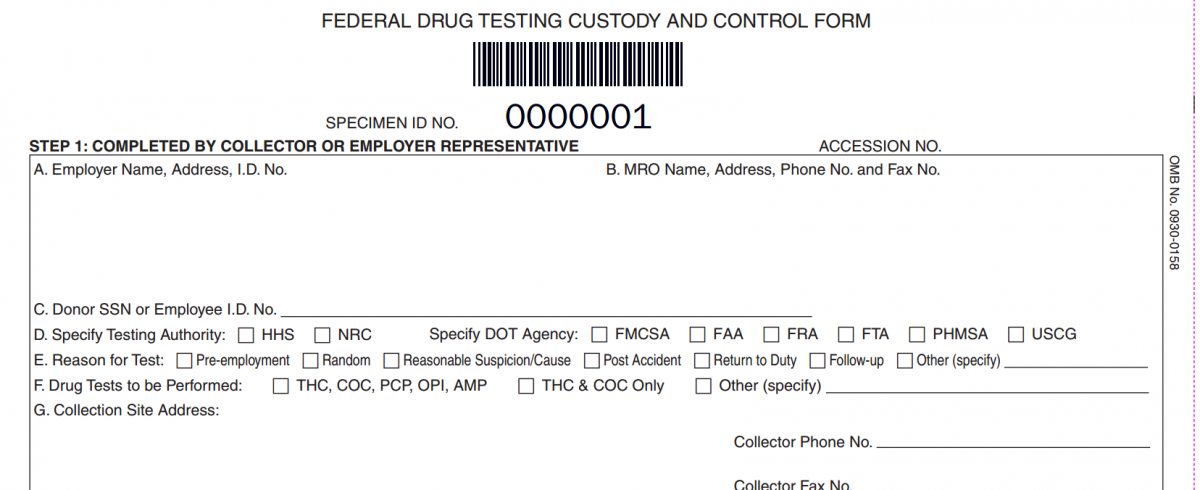
New DOT CCF
Important DOT Notice!
The new DOT drug testing Custody and Control Form (CCF) is required to be used as of June 30, 2017. It is important to note that utilizing the “old” CCF form will cause a significant delay in the issuance of your drug testing results. Click here for the official DOT notice regarding this rule change which took effect on January 1, 2018.
What are the differences between the “new” revised CCF or the “old” CCF?
Since 2010, the old CCF has been in effect and is the current CCF used for all DOT regulated drug testing.
Below you will find some helpful changes/updates to the revised (new) CCF required as of June 30, 2018.
- Step 1D-Removal of the DOT Check Box and hash line before the test “Specify DOT Agency”
-
Step 5A- the new form now includes the 4 new analytes: (see picture below)
- Oxycodone (OXY)
- Oxymorphone (OXYM)
- Hydrocodone (HYC) and
- Hydromorphone (HYM)
- The new rule has also removed the methylenedioxyethylamphetamine (MDEA) analyte.

Click here for the full version of the “New” Federal CCF
If you need more information on the new CCF effective June 30, 2018 or to enroll in a random drug and alcohol testing program call us today 800-221-4291
Court Date for Co-Pilot Being Intoxicated
Court Date Set for Co-Pilot Suspected of Being Intoxicated
April 14, 2016
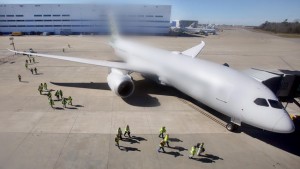 Back in March an American Airlines Co-Pilot was arrested on the tarmac as passengers looked on after failing a breathalyzer test. The flight was about to leave the Detroit Metropolitan airport was headed to Philadelphia, was immediately canceled.
Back in March an American Airlines Co-Pilot was arrested on the tarmac as passengers looked on after failing a breathalyzer test. The flight was about to leave the Detroit Metropolitan airport was headed to Philadelphia, was immediately canceled.
A Transportation Security Agent was the first person to witness the pilot acting suspiciously. Minutes before the flight was scheduled to take off, the airport police were contacted. The co-pilot reportedly failed the initial onsite breathalyzer test. The co-pilot also reportedly failed a second test after being arrested.
Wayne County Prosecutor Kym Worthy said that John Maguire will be arraigned and have a pre-trial hearing May 11 in Romulus, where the airport is located. He's been charged with operating under the influence of alcohol stemming from the March 26 incident. Authorities say he had a blood-alcohol level twice the legal limit.
FAA rules state that “no person may operate or attempt to operate an aircraft” within eight hours of having consumed alcohol or “with a blood alcohol content of 0.04 percent or greater.” The agency recommends that pilots wait 24 hours from the last use of alcohol before flying.
Defense attorney Frank Manley says he's taking the case very seriously and doing everything necessary to protect the public and Capt. Maguire. Manley adds his client has an outstanding record as a professional pilot.
“This is a serious matter and we are assisting local law enforcement and the Federal Aviation Administration with the investigation,” American Airlines said in a statement. “We will handle this matter appropriately as the safety and care of our customers and employees is our highest priority.”
Related Article
With drug and alcohol testing centers throughout the entire state of Michigan, Accredited Drug Testing Inc. is available to answer all of your drug and alcohol testing questions and needs. For more information contact:
Andrew Gormally
Marketing/Industry Relations Assistant
Andrew@accredtiteddrugtesting.com
/
(800) 221-4291
Accredited Drug Testing Inc
Health Screening USA Inc
CSX Freight Train Derails Outside of DC
CSX Freight Train Derails
5/2/16
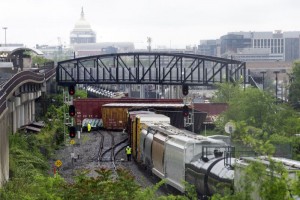
A huge CSX train car plowed into the car in front of it early Sunday, resulting in the cars veering off the tracks and on top of each other.
CSX crews continued to clear rail cars from tracks near the Rhode Island Avenue Metro station Monday, a day after a freight train crashed off the tracks and spilled hazardous material.
The derailment near Rhode Island Avenue and 9th Street NE about 6:40 a.m. Sunday spilled three chemicals onto the tracks, forcing the closure of the Metro station and causing disruptions to Amtrak and MARC service.
Sixteen cars slammed off the tracks near a heavily populated neighborhood. No injuries were reported, and the chemicals pose no immediate danger to the public, D.C. Assistant Fire Chief John Donnelly and CSX spokeswoman Kristin Seay said.
“The safety of the community, first responders and CSX employees remains our priority,” Seay said in a statement. About 750 gallons of sodium hydroxide, more commonly known as lye, leaked from one of the derailed tanker cars, CSX said. Another derailed car leaked a non-hazardous calcium chloride solution. A third car seeped ethanol, a fuel additive.
The cause of the derailment was not immediately clear. The 175-car train with 94 loaded cars was en route to Hamlet, North Carolina, from Cumberland, Maryland. CSX said Monday that 16 cars were affected, not the 15 the company previously reported.
Once the rail cars are moved, CSX crews will lay new track and then dig up and haul away soil contaminated by the chemicals. The CSX operation center is expected to remain near the derailment site through at least Thursday. Cleanup work will continue around the clock. The investigation into the cause of the derailment may not be complete until next year, officials said.
With drug and alcohol testing centers throughout the entire state of Maryland, Accredited Drug Testing Inc. is available to answer all of your drug and alcohol testing questions and needs. For more information contact:
Andrew Gormally
Marketing/Industry Relations Assistant
Andrew@accredtiteddrugtesting.com
/
(800) 221-4291
Accredited Drug Testing Inc
Health Screening USA Inc
Would Truck Only Lanes Fix Congestion?
Would Truck Only Lanes Fix Congestion?
May 20 2016
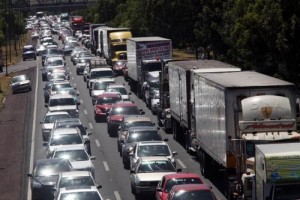
Dedicated truck lanes that are only for trucks should be everywhere. Seriously, that's the first thing I think of and that should be everywhere, not just even because the ports are going to be congested, Trish Anderson, 53, a truck driver from Mississippi, said while resting at an Ontario truck stop.
It would make it easier because you don't have to deal with all the cars. If it's all trucks, and everyone's in the same mindset, you don't have to dodge traffic.
With goods movement from the ports of Los Angeles and Long Beach expected to double in the next decade, logistics industry experts are looking at ways to address an expected tsunami of freight through the region's already congested freeways and streets.
Twenty-year traffic forecasts, according to an informational post on the San Bernardino Associated Governments (SABBAG) website, indicate that several Southern California freeways, including the 60 and I-15 in San Bernardino County, will experience increases in truck volumes so great, they'll take up the roadways' entire capacity.
Dedicated truck toll lanes have been proposed by Southern California transportation officials, but to build them, according to the SANBAG's online post, the public cost is likely to exceed $5 billion, of which at least $1.2 billion would be for truck lanes within San Bernardino County.
Renee Miri, 60, a truck driver from Michigan, said truckers wouldn't mind paying tolls for a dedicated truck lane. Dedicated truck lanes would be great if you had two lanes where you could pass other trucks because trucks always want to pass, Miri said. Trucks would probably pay tolls because sometimes it takes us five hours to get out of Los Angeles to Barstow when we pick up in L.A. That's just nuts.
We're not advocating for specific improvements other than additional capacity to help meet freight demands, said Will Kempton, executive director of Transportation California and a former director of Caltrans. Our program is concerned about the conditions of the roadway, and there are suggestions about dedicated truck lanes in terms of toll operations to allow for that.
With drug and alcohol testing centers throughout the entire United States, Accredited Drug Testing Inc. is available to answer all of your drug and alcohol testing questions and needs. For more information contact:
Andrew Gormally
Marketing/Industry Relations Assistant
Andrew@accredtiteddrugtesting.com
/
(800) 221-4291
Accredited Drug Testing Inc
Health Screening USA Inc
DOT Bans E-Cigarettes from Checked Baggage
DOT Bans E-Cigarettes from Checked Baggage
May 23 2016
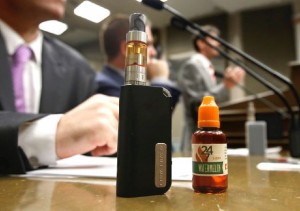
Earlier in May, the Department of Transportation announced the permanent banning of electronic cigarettes in checked baggage and the charging of the devices onboard an aircraft.
There have been recent incidents of devices catching fire during transport. Transportation Secretary Anthony Foxx stated that passengers may continue to carry e-cigarettes for personal use in carry-on baggage or on their person, but may not use them on flights.
“Fire hazards in flight are particularly dangerous,” Foxx said in a statement. “Banning e-cigarettes from checked bags is a prudent and important safety measure.”
An e-cigarette in a passenger’s checked bag in the cargo hold of an aircraft caused a fire forcing an evacuation of the plane at Boston’s Logan Airport. Another checked bag that arrived late and missed its connecting flight was found to be on fire in a baggage area at Los Angeles International Airport. The incident was blamed on an overheated e-cigarette inside the bag.
Due to the growing trend of users modifying and rebuilding their reusable e-cigarettes components, the government believes the danger has worsened. In March, the U.S. Transportation Department separately banned the use of electronic cigarettes on commercial flights.
On January 22, 2015, the Federal Aviation Administration issued a Safety Alert for Operators, which recommended that air carriers require their passengers to carry e-cigarettes and related devices exclusively in the cabin of the aircraft.
Congress banned all smoking on airline flights in 2000, and no U.S. airline allowed electronic cigarette use. The Department of Transportation stated that some charter flights may have allowed the use of electronic devices.
With drug and alcohol testing centers throughout the entire United States, Accredited Drug Testing Inc. is available to answer all of your drug and alcohol testing questions and needs. For more information contact:
Andrew Gormally
Marketing/Industry Relations Assistant
Andrew@accredtiteddrugtesting.com
/
(800) 221-4291
Accredited Drug Testing Inc
Health Screening USA Inc
Random Drug Testing Program in Missouri Schools
Random Drug Testing Program in Missouri Schools
Oct. 3 2016

Belton School District is the latest district in Missouri to start randomly testing its students for drugs. This policy was created by the district’s students who came up with the idea.
Under this policy, students with a permit to drive to school are now considered fair game to be randomly tested. Furthermore, any student in Grades 7-12 who is involved with an extracurricular activity would be required under this policy as well.
The school district provided the parents with letters discussing the policy during open enrollment.
Some parents were strongly on board with the decision, while others challenged the policy.
Many parents, interviewed were surprised that it was the district’s students that created and developed the idea.
Belton School District Superintendent Andy Underwood. Stated that “There was concern from students in meetings in regards to fellow students being addicted to drugs,”
This latest rollout will be in addition to 160 other school districts in Missouri.
The logistics for Belton County consist of 25 students in both middle and high schools that will be required to give a urine sample and be randomly tested each month.
If a student fails a test, they are immediately suspended from their activity, lose their parking pass and are offered counseling. Also as a results of a failed test, the student will be automatically tested again the following month and if there are three positive drug tests, it would result in the student getting permanently suspended from the activity.
For information regarding the effects of drug abuse Click Here
For information on a drug free work place Click Here
For information on substance abuse programs Click Here
For information on DOT Drug / Alcohol Testing requirements Click Here
John Burgos, CPC
Business Development Manager
https://www.AccreditedDrugTesting.com
(800) 221-4291
Accredited Drug Testing Inc
Health Screening USA Inc


